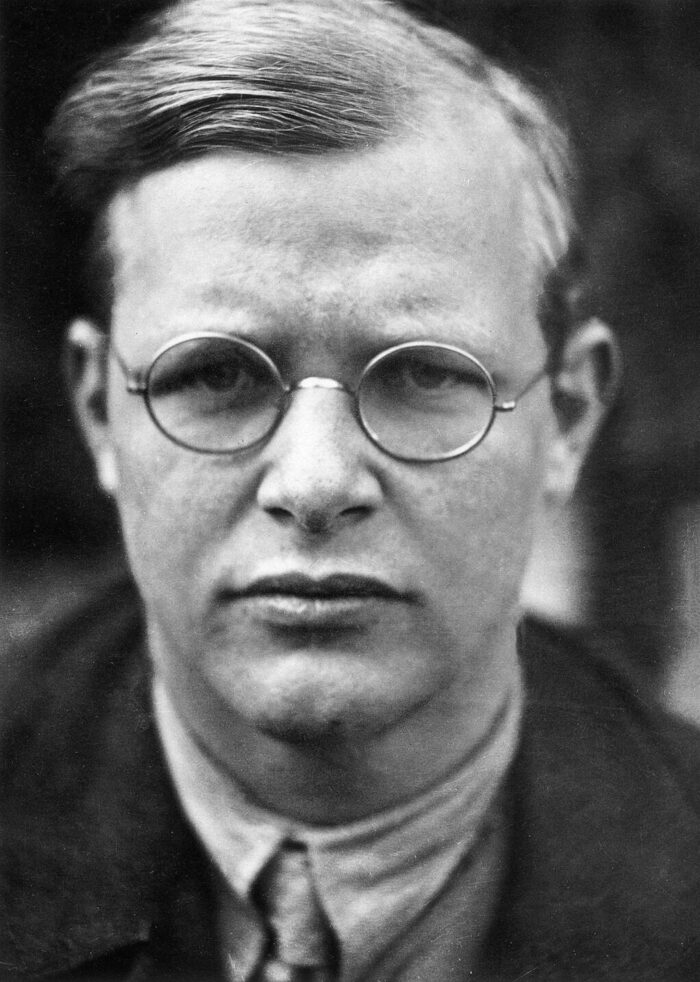Dietrich Bonhoeffer, Sustainability, Difficult Choices, and Right Choices
I’ve written about Dietrich Bonhoeffer and you can learn more about him from my podcast conversation with Martin Doblmeier, who directed a documentary about him, which I learned a lot from. I included Bonhoeffer in my upcoming book as a historic role model. He could have passed through WWII unscathed. Instead he chose to engage.
In particular, he participated in an attempt to assassinate Hitler. On the face of it, of course. Hitler was destroying the world. But Bonhoeffer followed Christ, especially the Sermon on the Mount. How could he justify killing someone, no matter how bad or evil he considered that person?
People often ask hypothetical questions today of what you might do if some quandary involved Hitler. These questions for us are just hypothetical. We never have to face them. Bonhoeffer did. While most of his countrymates chose to go along, thereby sacrificing their values, Bonhoeffer made the difficult choice to go with his values.
I cite him as a role model so more of us can choose to go with our values even if it means sacrificing some comfort and convenience.
I’m writing today to call attention to a scene in the documentary featuring Bonhoeffer’s close friend, Eberhard Bethge. In the scene, Bethge points out how Bonhoeffer had to consider his actions, ethics, and morality. It’s one thing to talk about ethics in the abstract. Hitler wasn’t abstract.
I queued the movie below to that interview. Here are the words Bethge spoke that show us what we can consider in our actions.
You are living now, and not tomorrow and not yesterday, but now, in your name are people killed and killed and killed and that man you have to stop by all means, even by taking on the guilt of killing him
Instead of arguing paper versus plastic, what might happen if fusion worked, or if we can terraform Mars, we can ask “what about people who would suffer from my actions for what I do here and now?” and “what can I do to alleviate suffering of innocent people today, not if we electrified everything, figured out direct air capture, or other purported solution that doesn’t work today?”
If you watch more of the movie, you’ll hear it quote a passage from Bonhoeffer’s letters from prison. His description of his time, knowing about the Holocaust, could apply today, with the caveat that today’s death toll is much much greater. Today, the Lancet reports nine million people die from breathing polluted air per year, among many other ways people suffer. Hitler took years to kill a smaller number of Jews but couldn’t continue. Our culture will kill another nine million next year, the following year, and so on, likely increasing unless we move substantially toward sustainability. Credible predictions suggest the number could increase multiple orders of magnitude.
We could learn from Bonhoeffer.
We have been silent witnesses of evil deeds: we have been drenched by many storms; we have learnt the arts of equivocation and pretense; experience has made us suspicious of others and kept us from being truthful and open; intolerable conflicts have worn us down and even made us cynical. Are we still of any use?
What we shall need is not geniuses, or cynics, or misanthropes, or clever tacticians, but plain, honest, straightforward men. Will our inward power of resistance be strong enough, and our honesty with ourselves remorseless enough, for us to find our way back to simplicity and straightforwardness?

Read my weekly newsletter

On initiative, leadership, the environment, and burpees
Pingback: This week’s selected media, October 27, 2024: The Cost of Discipleship » Joshua Spodek